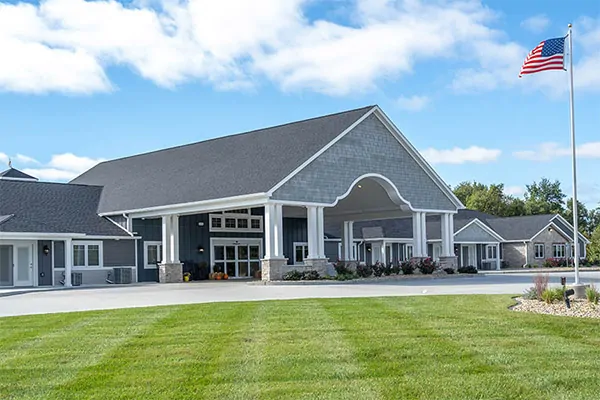SENIOR LIVING
Spotting Financial Scams: How Seniors Can Protect Their Savings
- Villas of Holly Brook
- August 1, 2024

In our senior living community, we prioritize the safety and well-being of our residents, which includes protecting their financial security. Financial scams are a growing concern, especially for seniors in assisted living, independent living, and memory care communities. These scams can cause significant financial losses and emotional distress. This blog post aims to provide valuable information on spotting financial scams and tips on how seniors can protect their savings.
Understanding Financial Scams
Financial scams are deceptive schemes designed to steal money or personal information from unsuspecting individuals. Seniors are often targeted because scammers perceive them as more trusting and having substantial savings. According to the FBI, seniors lose over $3 billion annually to financial scams. Understanding these scams is the first step in protecting oneself.
Common Financial Scams Targeting Seniors
Phishing Scams
Phishing scams involve fraudulent emails, phone calls, or texts that appear to come from legitimate sources, such as banks or government agencies. These scams aim to trick seniors into providing personal or financial information. For example, a scammer might send an email that looks like it’s from a bank, asking the recipient to confirm their account details.
Lottery and Sweepstakes Scams
In these scams, seniors receive calls or letters claiming they have won a lottery or sweepstakes they never entered. The scammer requests a fee to process the winnings or asks for personal information. The Federal Trade Commission (FTC) reports that lottery scams are among the top frauds targeting older adults.
Investment Fraud
Investment fraud involves offering fake investment opportunities that promise high returns with little risk. Scammers often exploit the trust and financial insecurities of seniors to persuade them into making hasty and uninformed investment decisions.
Tech Support Scams
Tech support scams involve scammers posing as technical support representatives from well-known companies. They claim the senior’s computer has a virus and ask for remote access or payment to fix the problem, often resulting in the theft of personal information or the installation of malicious software.
Social Security Scams
In this situation, scammers pose as Social Security Administration (SSA) employees, claiming that there is an issue with the senior’s Social Security number or account. They ask for personal information or demand payment to resolve the issue.
Identity Theft
Identity theft occurs when scammers steal personal information, such as Social Security numbers or bank account details, to commit fraud. Seniors are often targeted through phishing, mail theft, or data breaches. They should regularly monitor their financial statements and credit reports for any suspicious activity.Identity theft occurs when scammers steal personal information, such as Social Security numbers or bank account details, to commit fraud. Seniors are often targeted through phishing, mail theft, or data breaches. They should regularly monitor their financial statements and credit reports for any suspicious activity.
Funeral and Cemetery Scams
These scams involve fraudsters taking advantage of grieving seniors by overcharging for funeral services or selling unnecessary services. Some scammers also read obituaries to target recent widows or widowers, claiming the deceased owed a debt that needs to be settled.
Romance Scams
Romance scams involve scammers creating fake profiles on dating sites or social media to establish a romantic relationship with a senior. Once trust is built, the scammer asks for money for various fabricated reasons, such as medical emergencies or travel expenses to visit the senior.
Charity Scams
Scammers impersonate legitimate charities, often in the wake of natural disasters or other crises. They solicit donations from seniors, who may be more likely to contribute due to their compassionate nature. It’s crucial to verify the legitimacy of a charity before donating.
Medicare and Insurance Scams
Scammers pose as Medicare representatives to obtain personal information. These scams often involve phone calls or emails claiming that the senior needs to provide their Medicare number or other personal details to receive a new card or benefits.
How to Spot a Financial Scam
Recognizing the warning signs of a financial scam is crucial for seniors in assisted living, independent living, and memory care communities. Here are some red flags to watch for:
- Unsolicited contact: Be cautious of unsolicited phone calls, emails, or letters. The FTC reports that the largest losses reported by seniors started with a phone call. Scams initiated on social media have also substantially increased.
- Requests for personal information or money upfront: Legitimate companies and organizations will not ask for this information unsolicited.
- High-pressure tactics or urgent requests: Scammers often create a sense of urgency to make their victims act quickly without thinking.
- Promises of high returns with little or no risk: If it sounds too good to be true, it probably is.
To verify the legitimacy of a request or offer:
- Check the source of the contact. Look up the company’s contact information independently and reach out to confirm.
- Consult with a trusted advisor or family member before making any decisions.
- Research the company or individual making the offer. Look for reviews or complaints online.
Steps to Protect Yourself
Seniors in senior living homes and retirement communities can take several steps to protect themselves from financial scams:
- Never share personal or financial information over the phone or online unless you are certain of the recipient’s identity.
- Use strong, unique passwords for online accounts and change them regularly.
- Enable multi-factor authentication on financial accounts to add an extra layer of security.
- Monitor bank statements and credit reports regularly for unusual activity.
- Educate yourself and stay informed about the latest scams. Many senior care communities offer educational sessions on this topic.
What to Do if You’ve Been Scammed
If you believe you have been scammed, it is essential to act quickly:
- Contact your bank or financial institution immediately to report the fraud and secure your accounts.
- Report the scam to local law enforcement and relevant authorities, such as the Federal Trade Commission (FTC).
- Seek support from trusted family members or advisors. Many senior living communities have resources to help residents who may have been scammed.
Vigilance and awareness are crucial in protecting against financial scams. Seniors in assisted living, independent living, memory care, and other senior care communities should be proactive in safeguarding their financial well-being. By staying informed and cautious, you can help protect yourself and your savings.




































